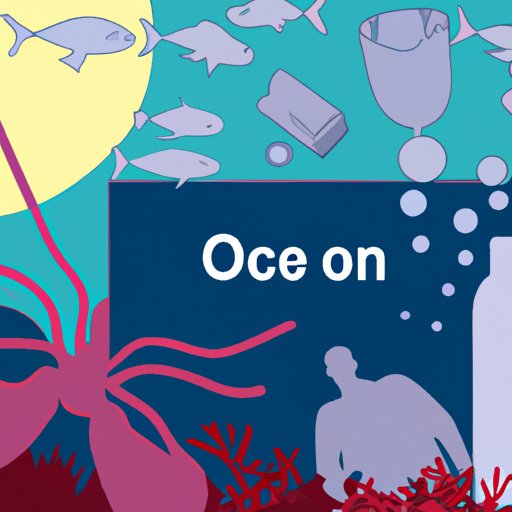Introduction
Marine biology is a natural science that studies the ocean and its inhabitants. It encompasses a wide range of topics ranging from the physical characteristics of the ocean to the behavior of marine organisms. Marine biologists study the relationships between these different elements and how they interact with one another in order to understand the overall functioning of the oceanic environment. This knowledge can be used to inform conservation efforts, ensure sustainable use of resources, and protect vulnerable species. In this article, we will explore the nature and significance of marine biology in natural science.
What Does it Mean to be a Marine Biologist?
A marine biologist is someone who studies the ocean, its inhabitants, and their interactions. They use a variety of tools and techniques to observe and collect data about the ocean environment, such as microscopes, sensors, and underwater cameras. They also analyze the data they collect to gain a better understanding of the ocean and its inhabitants. Marine biologists are not just scientists, but also advocates for ocean conservation. They use their knowledge to inform policy decisions, raise awareness about issues impacting the ocean, and support conservation efforts.
The role of marine biology in natural science is to provide an understanding of the ocean and its inhabitants so that effective conservation strategies can be implemented. It is essential for marine biologists to understand the interconnectedness of marine life and how human activities can impact the ocean environment. By studying the impacts of climate change, pollution, overfishing, and other human activities, marine biologists can identify areas of concern and develop solutions that protect the ocean and its inhabitants.
Uncovering the Mysteries of the Sea
Climate change is one of the major threats facing marine ecosystems today. Marine biologists are researching the effects of rising temperatures, ocean acidification, and melting ice on marine life. According to a study by the International Union for Conservation of Nature (IUCN), “the combined impacts of climate change and other human activities are likely to cause mass extinctions of marine species and degradation of habitats.” This research is essential for developing strategies to protect vulnerable species and mitigate the impacts of climate change.
Pollution is another major threat to marine ecosystems. Marine biologists are examining the effects of plastic pollution, oil spills, and nutrient runoff on marine life. According to a study by the National Oceanic and Atmospheric Administration (NOAA), “plastic pollution is a global problem with long-term consequences for marine life.” This research is essential for developing strategies to reduce plastic pollution and its impacts on marine life.
Conclusion
Marine biology is a natural science that is essential for understanding the ocean and its inhabitants. It is used to inform conservation efforts, ensure sustainable use of resources, and protect vulnerable species. Marine biologists use a variety of tools and techniques to observe and collect data about the ocean environment, then analyze this data to gain a better understanding of the ocean and its inhabitants. By studying the impacts of climate change, pollution, overfishing, and other human activities, marine biologists can identify areas of concern and develop solutions that protect the ocean and its inhabitants.
Understanding marine biology is essential for ensuring the health of our oceans and preserving marine life. Marine biologists play a vital role in natural science by providing an understanding of the ocean and its inhabitants so that effective conservation strategies can be implemented. We must continue to invest in research and education that focuses on marine biology in order to protect our oceans and ensure their future health.
(Note: Is this article not meeting your expectations? Do you have knowledge or insights to share? Unlock new opportunities and expand your reach by joining our authors team. Click Registration to join us and share your expertise with our readers.)
